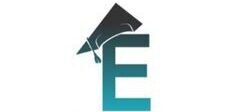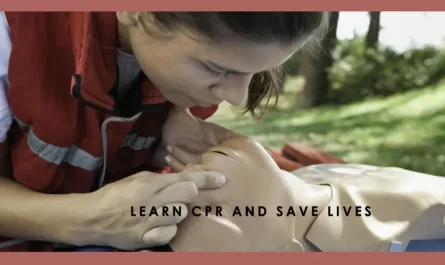Understanding the scoring system for the USMLE Step 1 can be confusing for future doctors. This exam is crucial for medical education, testing not only what you know but also how well you can use that knowledge. In this discussion, we’ll break down the complexities of the passing score, using insights from experts. Our goal is to make the passing threshold clearer, providing information to help candidates improve their preparation strategies.
Overview of USMLE Step 1 Scoring System
Mastering the scoring system is crucial for those embarking on their USMLE preparation journey. Unravelling the complexities of how USMLE Step 1 scores are determined involves a meticulous exploration of raw versus scaled scores. This cryptic process assigns points for accurate responses within the assessment, forming a numerical tapestry that goes beyond mere metrics. For those seeking the best USMLE prep courses, understanding this elusive calculus becomes paramount. This guide navigates the labyrinth of scoring intricacies, offering insights vital for anyone enrolled in a USMLE prep course and aspiring to excel in their USMLE preparation.
Raw scores, representing the total number of correct answers, are then converted to scaled scores through a statistical process that accounts for variations in question difficulty across different exam forms. The scale is designed to ensure fairness and consistency in score interpretation. The passing score is currently 194, and the maximum achievable score is 300. These scores are crucial in medical licensing, influencing residency program selection and career prospects for aspiring physicians. A competitive score is often a key determinant in securing preferred residency positions and advancing in the medical profession.
Understanding the Passing Score

Achieving success in the USMLE Step 1 is contingent upon a comprehensive understanding of the intricacies of a passing score. This metric, determined by an expert committee and periodically reviewed, transcends mere percentage representation. Rather, it serves as a reflection of a candidate’s medical competence, carefully evaluated by seasoned physicians. Dispelling misconceptions, the passing score is a gateway indicating a candidate’s profound grasp of core medical concepts and their practical application. It signifies readiness to progress into the clinical phase of medical education.
To navigate this critical milestone, candidates must adopt a nuanced preparation strategy that extends beyond numerical metrics. Engaging with the practical application of medical knowledge and refining problem-solving skills is paramount. Embracing a multidimensional approach, this journey surpasses the limitations of rote memorization. Emphasizing the need for a diverse and intricate preparation methodology. Enrolling in the best USMLE prep courses, specifically tailored to address these requirements, becomes an indispensable part of this holistic preparation process.
Percentage of Questions Right to Pass
Navigating the enigmatic landscape of USMLE pass percentages remains a perplexing challenge for aspiring medical professionals. The intricacies of the scoring algorithm, coupled with the exam’s sensitivity to difficulty levels and the dynamic influence of fellow test-takers, create a complex tapestry. As candidates strive to unravel the mysteries of this pivotal examination, the quest for a fixed benchmark adds a layer of complexity. The mercurial nature of the evaluation system defies a straightforward percentage, injecting an element of enigma into the already unpredictable terrain of medical examinations. Amid this complexity, the role of a USMLE prep course, particularly the best USMLE prep course, becomes paramount in guiding candidates through this intricate journey. This test, designed to assess a candidate’s application of medical knowledge and understanding of biomedical and clinical science for patient care, underscores the need for clarity in preparation methodologies.
The examination comprises multiple-choice questions and computer-based case simulations. The scoring system aims to provide a fair evaluation of a candidate’s proficiency in various medical disciplines. It considers the difficulty level of questions, ensuring that candidates are judged based on the rigour of the content they encounter. Ultimately, the absence of a fixed passing percentage underscores the dynamic and adaptive nature of the USMLE Step 1, emphasizing the importance of a comprehensive and well-rounded preparation strategy for success.
Factors Influencing Exam Performance
The USMLE Step 1 outcome hinges on various determinants, including question complexity, testing conditions, and individual preparation. Navigating intricate queries strategically and mastering concepts thoroughly, with a focus on passing the USMLE exam, proves pivotal. Effective study habits, encompassing a well-structured schedule and leveraging resources like review books and practice exams, significantly impact Step 1 performance. Maximizing cognitive acuity demands academic readiness and prioritizing a comprehensive, health-conscious lifestyle that incorporates sufficient sleep and adept stress management.
Engaging in collaborative efforts with peers, participating in study groups, and seeking guidance from USMLE 1 mentors can provide invaluable perspectives and assistance throughout the preparation journey. Furthermore, staying informed about the latest updates and changes in the exam format ensures that your study plan aligns with the most current expectations for success.
Strategies for a Successful Exam

Maximizing your chances to pass USMLE Step 1 involves strategic preparation. Crafting an all-encompassing study regimen demands adept time allocation, incorporating the invaluable insights of experts, and diligent practice assessments. Mastery of pivotal subjects and adept question-solving skills constitute pivotal facets of your preparatory odyssey. Furthermore, infusing dynamic learning methodologies into your study rituals becomes imperative. Engage in group discussions, seek study partners, and participate in online forums to gain different perspectives and insights.
Dr. Bukhari emphasizes the importance of understanding underlying concepts rather than memorizing isolated facts. Leverage diverse learning resources like textbooks, video lectures, and flashcards to accommodate various learning modalities. Acknowledge the vital role of sustaining a well-balanced study schedule throughout this rigorous preparation phase; prioritize sufficient rest, physical activity, and proper nourishment to enhance cognitive performance.
Dealing with Exam Anxiety
Anxiety can be a significant barrier in your quest to pass USMLE Step 1. Effectively navigating pre-exam anxiety is as vital as acing the subject matter. Deep respiration, mindfulness, and constructive visualization are paramount for sustaining composure. Adhering to a structured routine on exam day is pivotal for stress mitigation. Establishing a robust support network proves instrumental in assuaging anxiety during USMLE preparation. Collaborating with cohorts and participating in study collectives nurtures a camaraderie, augmenting reciprocal comprehension.
Break down study material into manageable segments and set realistic goals to mitigate the overwhelming nature of the process. Prioritize self-care, acknowledging adequate sleep, nutrition, and exercise’s pivotal role in mental and physical well-being. Mastery of Step 1 involves academic prowess and the cultivation of a balanced and healthy lifestyle.
After the Exam: Interpreting Your Score
Decoding one’s score is crucial post-exam, whether in triumph or contemplating a resit. Understanding the result meticulously is vital for navigating the future path. For those falling short, resilience is key—USMLE experts emphasize learning from setbacks to enhance future performance. Challenges require a wise view, seeing obstacles not as barriers but as stepping stones forward. Navigating through difficulties with a tenacious spirit is the cornerstone of personal development. Embracing a positive mindset fosters a sense of adaptability, allowing individuals to extract wisdom from every trial encountered.
Moreover, cultivating resilience not only aids in overcoming obstacles but also fortifies one’s character, leading to a more robust foundation for future endeavours. Navigating life involves traversing peaks and valleys, with the troughs serving as fertile grounds where the seeds of grit are quietly planted, poised to burgeon into resilience through the careful cultivation of unwavering persistence.
Mastering the USMLE Step 1 demands a nuanced grasp of its scoring intricacies and the paramount importance of a passing mark. No fixed percentage guarantees success, urging candidates to forge a dynamic, all-encompassing strategy. The fluid interplay of question difficulty, individual readiness, and exam conditions adds a layer of unpredictability. Success hinges on adeptly blending robust study habits, mentorship, and recommended resources. Underlining the exam’s dual nature: an academic challenge intertwined with personal evolution.




